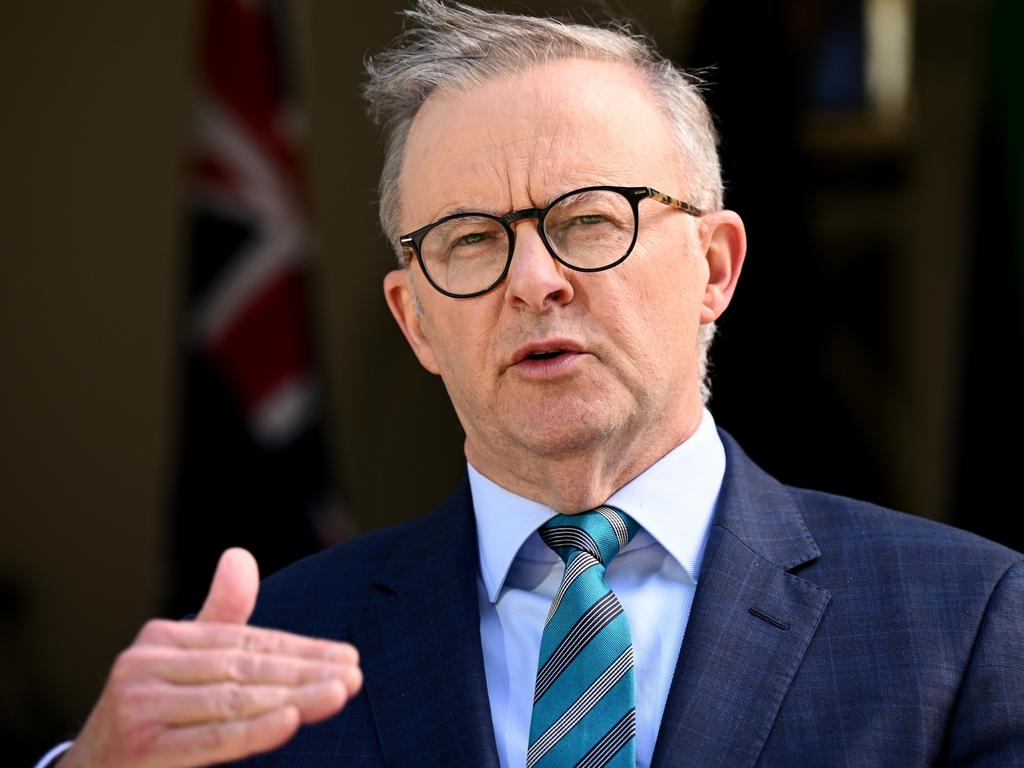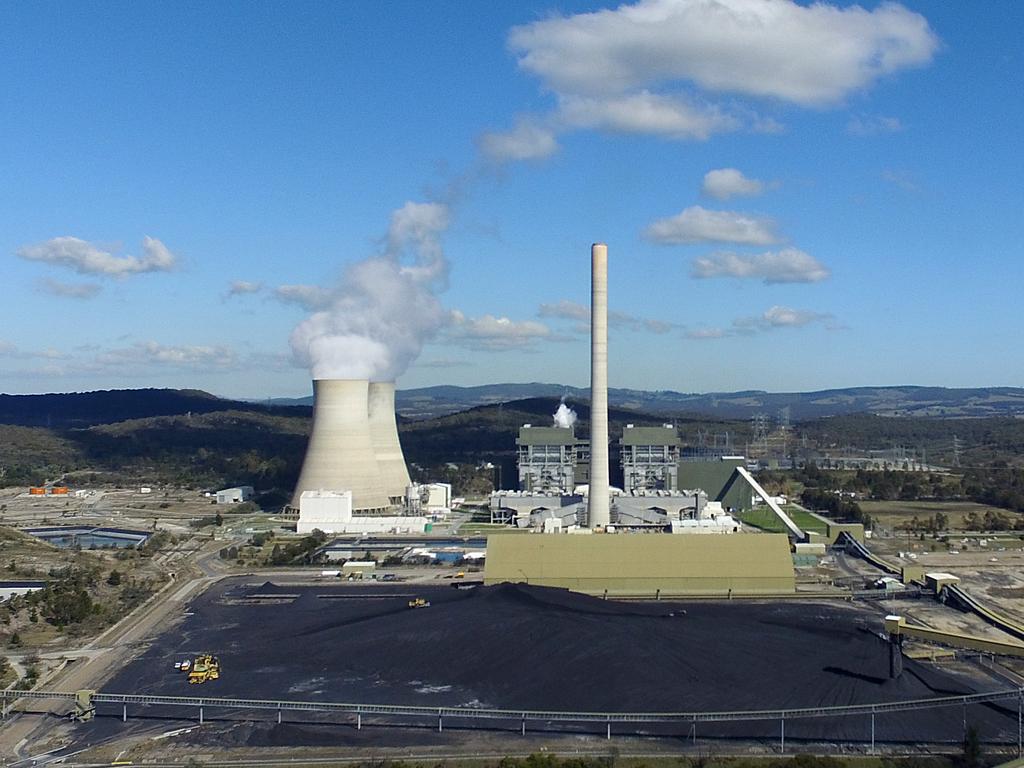
This package overall runs far beyond a 12-month temporary measure. Labor has embarked on a new interventionist economic direction sure to have consequences for supply, pricing and reliability in the massive energy transition to which Labor is pledged. It is a short-run fix with long-run consequences.
Albanese Labor was caught in a dilemma – some form of state intervention, by law or persuasion, was essential to limit prices but any mandated intervention would come with unintended policy dangers. They are now on display with alarm sirens from the gas sector, contemptuous dismissal by Labor ministers but underpinned by the law of economics – price restraint inevitably means supply attrition.

Gas companies have cried wolf before. But the policy as outlined envisages a sustained intervention that must have deep consequences. It means a degree of price relief for households and industry that will guarantee political authorisation, though the actual size of the price relief raises doubts about the benefits and costs in the entire package; it hits gas company profits with a dampening impact on investment and supply that will deepen the uncertainty about the role of gas in Australia’s transition; it highlights the urgency with which Labor must oversee massive capital investment in renewable technology to deliver its emission reduction targets; and it heightens the risk of a crisis in the power system’s capacity as Labor aspires to what seems improbable, keeping sufficient fossil fuel reliability in the system as the market shifts to renewable investment.
The immediate politics will surely work. Labor expects to prevail in the parliament. The industry may threaten but it lacks the traction to wage a successful $20m mass media campaign. Labor is emboldened because it enjoys the electoral winds. Albanese Labor is imposing tight controls on the sector but mocks any notion investment will be damaged – that’s heroic.
Beyond the 12-month price caps, the policy seeks a regime of gas price regulation by imposing a “reasonable” price on gas companies that will remain “as long as required” – given the Ukraine war outlook and current global pressures, that may be a long time indeed. The idea is to introduce a system ranging from mediation to binding arbitration in gas price negotiations as advised by the Australian Competition & Consumer Commission.
The Business Council of Australia welcomes the price relief for households and small business but delivers a potent warning. “Without careful management, the long-term consequences of dramatic intervention could end up making the problem much worse,” BCA chief executive Jennifer Westacott said. She said that without effective management, price caps in the long run will “drive up and sustain higher prices for consumers”. Westacott’s fear is Labor’s policy may become yet another “domestic ad hoc intervention and failure to plan that got us here in the first place”.
Even among representatives of the manufacturing sector there is wariness. Australian Industry Group chief executive Innes Willox, representing much of the manufacturing industry, said the current market “has not been working in the national interest” but called the package a “big step”, dramatic yet messy.
Speaking her brief, Australian Petroleum Production & Exploration Association chief executive Samantha McCulloch repudiated Anthony Albanese’s claim the policy would not damage gas investment in Australia. McCulloch said Labor’s policy would “chill investment”, lead to less gas supply, finish by driving up costs and would send a damaging signal for an industry that had invested $400bn in the Australian economy that “the government (can) change the rules of the game at any moment”.
Yet Albanese stands on the edge of a major political victory. If, as expected, he wins in parliament, Albanese will have demonstrated Labor’s ability to devise, announce, legislate and foreshadow further action that inaugurates new economic directions for Australia in the energy industry and controls over the massive gas sector.
Following Labor’s successful passage of its industrial relations bill with multi-employer bargaining, Albanese is displaying the government’s determination to fashion a more regulatory Labor economic policy in response to events along with its potential to carry such measures through the parliament. Success on the energy front would cap a remarkable opening phase for Albanese as Prime Minister.
Have no doubt the iron has entered Labor’s soul on this issue. It acts to assist the manufacturing industry and its 900,000-strong workforce. It says the caps on gas and coal will reduce the increase in power bills by $230. It says the 12-month gas price of $12 a gigajoule reflects ACCC analysis of pre-Ukraine war pricing.
Jim Chalmers points out there was pressure on Labor to go further and be tougher by imposing a lower price cap or backing a windfall tax on the industry. The Treasurer’s message: Labor is being restrained. He says the government supports the gas industry but won’t tolerate seeing local industries hollowed out and Australian families punished.
A wedge of mistrust is being driven between Labor and the gas companies. It is no surprise that Albanese in a radio interview praised Western Australia’s gas reservation policy that guarantees a domestic gas supply and then, asked if the national government needed to consider such a policy, replied: “We do.”

That would constitute another huge challenge. It has a logic in the sense that Australia needs a long-run structural answer to the immediate dilemmas it confronts. Labor sees the domestic gas market as dysfunctional. In championing the announced policy, Industry Minister Ed Husic attacked the companies for “wartime profiteering”, claiming they “have proposed nothing and opposed everything” while manufacturers were under huge energy price pressures.
Husic gave the companies some advice: don’t run a $20m campaign, use your funds to cut prices. He said industry claims that investment would be chilled “didn’t pass the pub test”. There is bad blood and big trouble coming.
Energy Minister Chris Bowen dismissed complaints from gas producers as untenable. “This is Australian gas under Australian soil and Australians have a right to access it at a fair price,” Bowen told Sky News. He said the gas companies operated with a social licence and Labor would “apply that social licence”.
Labor’s package doesn’t cut energy prices. It won’t redeem Labor’s election promise to cut the average household power bill by $275. Peter Dutton has run hard against Labor’s plan despite being branded as the leader who wants people to pay higher power prices. But the Opposition Leader believes Labor is sinking in the pricing and ideological contradictions of its energy policy.
State and federal ministers have agreed that both gas and coal be excluded from the new capacity plan to deliver reliable power – a contradiction in terms. And Dutton is convinced that Labor is rushing towards a mammoth blunder: “You can’t turn off the old system before the new system is ready.”








The Albanese government operates from political strength in seeking parliamentary and public support for its energy price caps – but its intervention in energy markets, both short term and longer run, is fraught with risks that will raise alarms about regulatory overkill.